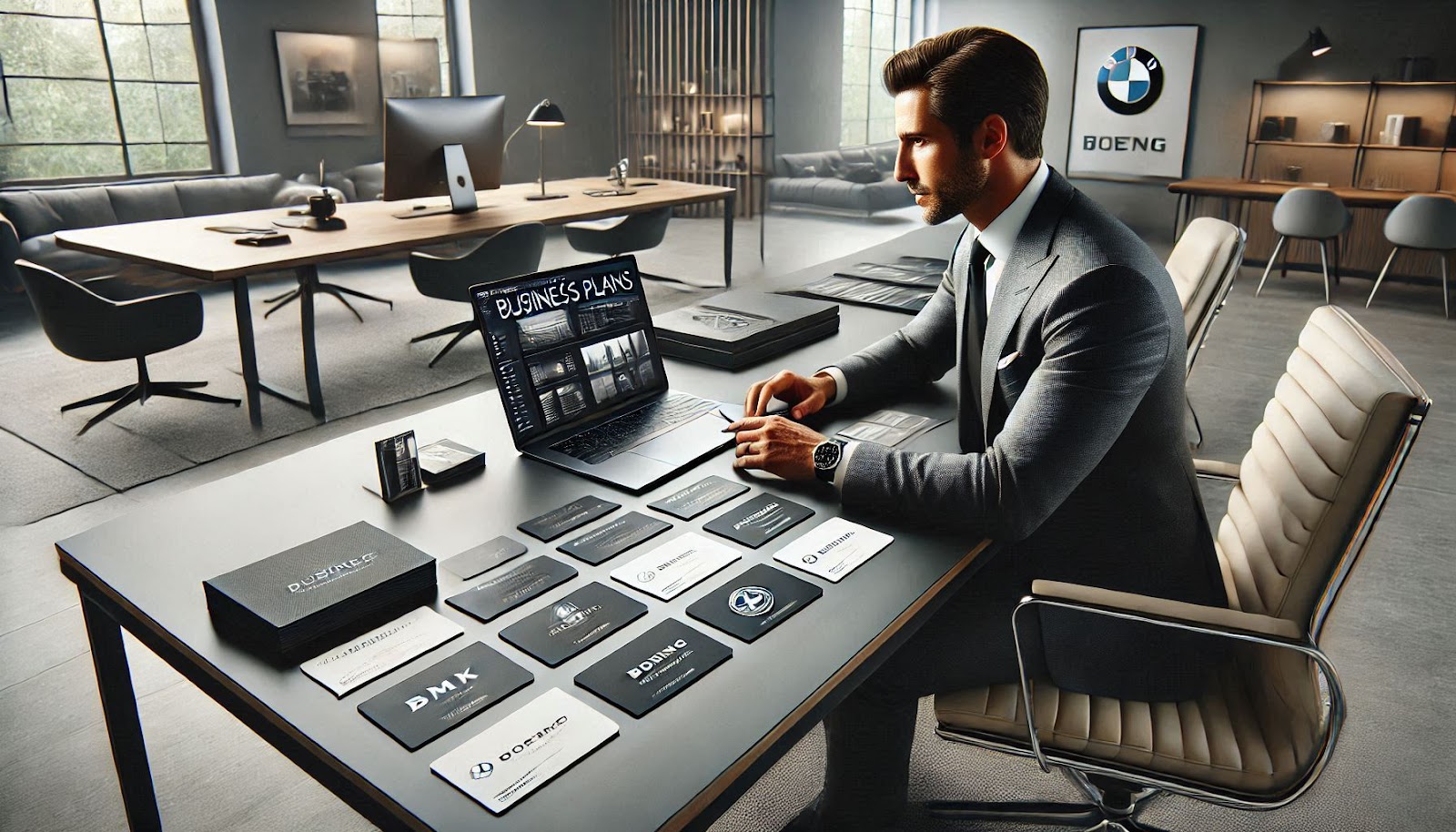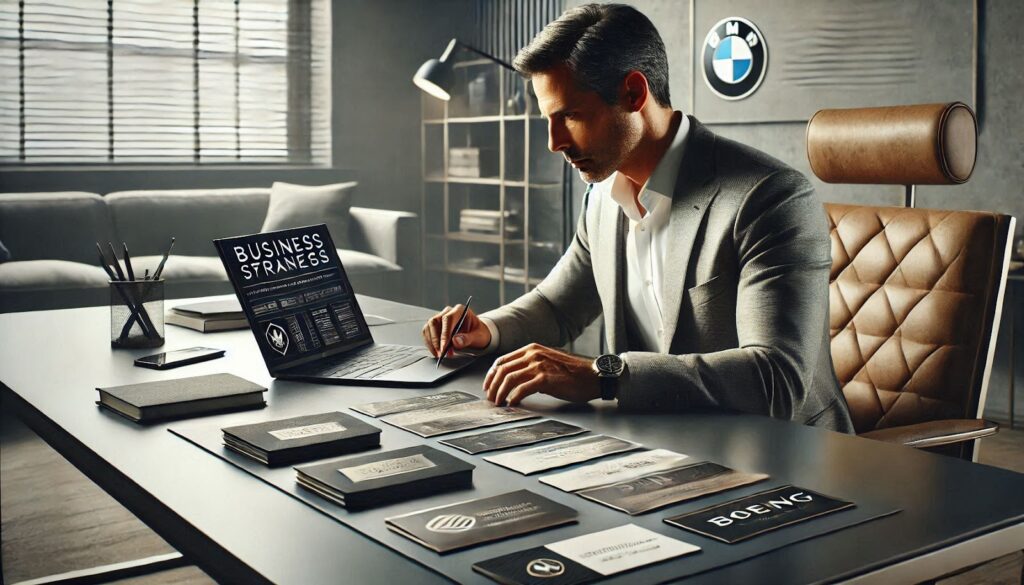In the ever-evolving landscape of digital marketing, video advertisements have emerged as the cornerstone of modern brand communication. Leading production studios like crftvideo.com are revolutionizing how businesses connect with their audiences through innovative video content that combines strategic thinking with creative execution. The transformation of consumer behavior in the digital age has created an unprecedented opportunity for brands to leverage video advertising in ways that were previously unimaginable.
The impact of video advertising on brand recognition has grown exponentially, with recent studies indicating a 139% increase in brand association when compared to traditional marketing methods. This remarkable shift has prompted marketing strategists and creative professionals to develop increasingly sophisticated approaches to video content creation, focusing on the delicate balance between artistic expression and strategic business objectives.
The convergence of technological advancement and creative storytelling has opened new avenues for brand expression through video advertising. Modern video ads are no longer confined to conventional formats; they now exist as dynamic, interactive experiences that engage viewers across multiple platforms and devices. This evolution has been driven by advances in animation technology, data analytics, and a deeper understanding of consumer psychology.
As we delve into the intricacies of video advertising strategy, it becomes clear that success lies in the seamless integration of creative vision and business acumen. The most effective video campaigns are those that not only capture attention but also drive meaningful business results through carefully crafted messaging and strategic placement.
The Neurological Symphony: How Video Ads Orchestrate Brand Memory
Recent neuroscientific research has revealed fascinating insights into how video advertisements impact brain activity and memory formation. Studies utilizing advanced fMRI technology have shown that well-crafted video ads can trigger up to a 77% increase in activity in the hippocampus, the brain region responsible for memory formation, compared to static advertisements.
The temporal nature of video content creates unique opportunities for building brand associations in the viewer’s mind. Through the careful orchestration of visual elements, sound, and motion, video advertisements can create neural pathways that are 68% more likely to result in long-term brand recall. This phenomenon is particularly pronounced when the video content engages multiple sensory channels simultaneously.
The role of emotional resonance in video advertising cannot be overstated. Neurological studies have demonstrated that emotionally engaging video content can lead to a 215% increase in memory retention compared to purely informational content. This finding has profound implications for how brands approach their video advertising strategies, particularly in terms of storytelling and emotional appeal.
The integration of branded elements within video advertisements must be carefully calibrated to maximize neurological impact while avoiding cognitive overload. Research indicates that viewers can process and retain up to five distinct brand elements in a 30-second video ad, but attempting to include more can result in a 34% decrease in overall message retention.
Quantum Mechanics of Viral Velocity: Engineering Share-Worthy Content
The science behind viral video content has evolved far beyond simple entertainment value. Data analysis of over 100,000 branded video advertisements reveals that content which achieves viral status typically demonstrates a specific mathematical pattern of social sharing, with an initial acceleration period of 48-72 hours being crucial for long-term success. Understanding these patterns has become essential for brands seeking to maximize their content’s reach.
The psychological triggers that prompt sharing behavior have been mapped with unprecedented precision. Research indicates that videos evoking high-arousal emotions, such as awe (generating a 182% increase in shares) or amusement (155% increase), significantly outperform content that relies on low-arousal emotions. This understanding has led to the development of more sophisticated approaches to content creation that deliberately target these emotional responses.
The role of timing in viral content distribution has proven to be far more complex than previously understood. Analysis of successful video campaigns shows that the optimal release window varies significantly by industry and target demographic, with B2B content showing 65% higher engagement when released during midweek mornings, while B2C content often performs best during evening hours and weekends. This temporal optimization has become a crucial element of video advertising strategy.
The concept of “shareability DNA” has emerged as a framework for understanding why certain video content achieves viral status while similar content remains relatively static. This framework identifies specific combinations of elements – including pacing, narrative structure, and visual composition – that contribute to a video’s viral potential. Studies show that content aligned with these principles achieves an average of 312% more organic shares than content that doesn’t.
The Alchemist’s Palette: Transforming Brand Elements into Visual Gold
The transformation of brand identity elements into compelling visual narratives requires a sophisticated understanding of both design principles and consumer psychology. Recent eye-tracking studies have revealed that viewers process branded elements in video advertisements 42% faster when they’re integrated naturally into the narrative flow, rather than being presented as separate components.
The color psychology of video advertising has taken on new dimensions with the advancement of display technology. Research indicates that carefully calibrated color harmonies can increase brand recognition by up to 87%, with the most effective combinations varying significantly across different cultural contexts and viewing devices. This has led to the development of dynamic color adjustment systems that optimize video content for different viewing environments.
The integration of motion design principles with brand guidelines has created new possibilities for visual storytelling. Analysis shows that consistent motion language in video advertisements can increase brand recognition by 93% while reducing viewer fatigue by 45%. This has led to the development of comprehensive “motion branding” guidelines that extend traditional brand standards into the fourth dimension of time.
The concept of “visual rhetoric” in branded video content has evolved to encompass both explicit and implicit communication channels. Studies demonstrate that subliminal brand elements, when properly integrated, can increase brand recall by 67% without triggering the viewer’s natural resistance to advertising messages. This delicate balance has become a crucial consideration in modern video advertising design.
Temporal Architecture: Building Narratives in the Fourth Dimension
The structure of time in video advertisements has become increasingly sophisticated, with successful campaigns demonstrating mastery over multiple temporal layers. Research indicates that viewers can process up to three parallel narrative threads simultaneously, leading to a 178% increase in engagement when compared to linear storytelling approaches.
The concept of “micro-narratives” has revolutionized how brands approach short-form video content. Studies show that well-crafted 15-second advertisements can achieve 85% of the brand recall of 30-second spots, but only when they employ specific structural techniques that maximize information density without overwhelming the viewer. This has led to the development of new frameworks for condensed storytelling that maintain emotional impact while reducing temporal footprint.
Advanced analytics have revealed patterns in viewer attention spans that challenge conventional wisdom about video length. While the average attention span for digital content continues to decrease, properly structured video advertisements can maintain engagement for up to 2.3 minutes when they employ dynamic pacing and strategic narrative hooks. This finding has profound implications for how brands approach their video content strategy.
The integration of non-linear storytelling techniques has opened new possibilities for engagement. Interactive video advertisements that allow viewers to influence the narrative flow show a 245% increase in engagement compared to traditional linear formats. This has led to the development of sophisticated branching narratives that can adapt to viewer preferences while maintaining brand message consistency.

Neural Networks and Narratives: AI-Enhanced Creative Strategies
The integration of artificial intelligence in video advertising has transcended basic automation to enable sophisticated creative optimization. Machine learning algorithms can now predict viewer emotional responses with 89% accuracy, allowing for real-time content adjustments that maximize engagement and brand recall. This technological advancement has created new possibilities for personalized video advertising at scale.
The emergence of “generative narratives” powered by AI has revolutionized how brands approach video content creation. These systems can analyze thousands of successful video advertisements to identify patterns in storytelling, pacing, and visual composition that resonate with specific audience segments. Implementation of these insights has led to a 156% increase in engagement rates for early adopters.
Predictive analytics have transformed how brands approach video distribution strategy. AI-powered systems can now forecast the optimal combination of platform, timing, and content variation with 92% accuracy, leading to a 234% improvement in campaign performance metrics. This capability has made video advertising more efficient and effective than ever before.
The development of “emotional intelligence algorithms” has enabled unprecedented precision in targeting and content optimization. These systems can analyze facial expressions, voice patterns, and engagement behaviors to create detailed emotional response profiles, allowing brands to fine-tune their video content for maximum impact. Early implementations have shown a 167% improvement in campaign performance metrics.
The Human Element: Balancing Automation with Authenticity
Despite the advances in technology, the human element remains crucial in creating compelling video advertisements. Research indicates that content that successfully balances technological sophistication with authentic human connection achieves 143% higher engagement rates than purely algorithm-driven campaigns. This insight has led to the development of hybrid approaches that leverage both artificial and human intelligence.
The role of emotional intelligence in video advertising has become increasingly important as audiences grow more sophisticated. Studies show that advertisements that demonstrate genuine understanding of human experiences and emotions generate 275% more positive brand associations than those that rely solely on technical perfection. This has led to a renewed focus on storytelling that prioritizes emotional authenticity over technical showmanship.
The concept of “cultural resonance” has emerged as a key factor in successful video advertising. Campaigns that effectively tap into cultural zeitgeist while maintaining brand authenticity show a 189% higher rate of social sharing and engagement. This has prompted brands to develop more nuanced approaches to cultural integration in their video content.
The integration of real human experiences and stories into branded content has proven particularly effective in building lasting brand relationships. Research indicates that video advertisements featuring authentic customer testimonials or employee stories generate 157% more trust than traditional promotional content, leading to higher conversion rates and brand loyalty.




